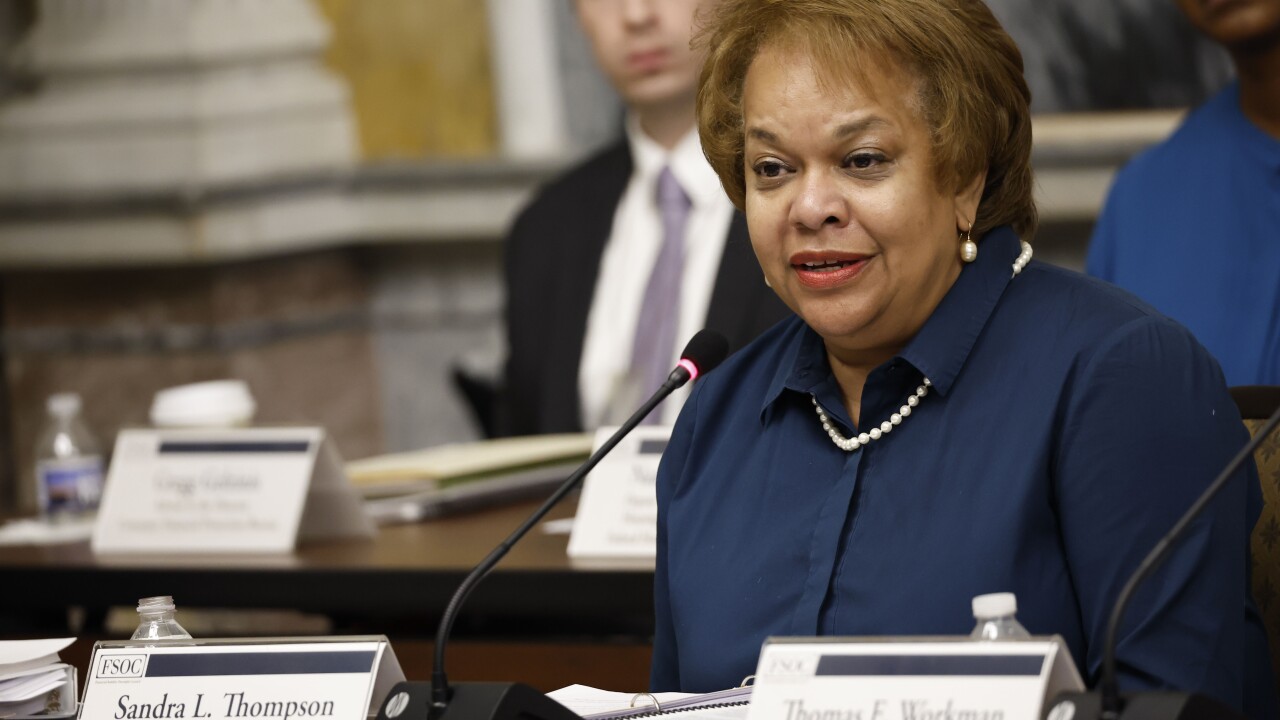
WASHINGTON — PHH Corp. has been ordered to pay $109 million over allegations that it illegally accepted kickbacks on reinsurance premium payments after Consumer Financial Protection Bureau Director Richard Cordray partially overruled a decision previously made by an administrative law judge.
Cordray issued the decision Thursday, agreeing with an administrative law judge who found last year that PHH (and several related companies) received mortgage kickbacks in the form of reinsurance payments from insurers to which it had referred customers. The judge tied the violations to reinsurance premiums paid and to loans that closed since July 21, 2008.
But Cordray's final decision expanded the scope of the allegations, saying PHH's violations occurred more often than the judge ruled and dated back to loans that closed earlier than the 2008 date.
Beyond the court's findings, "I now conclude that PHH committed a separate violation of RESPA [Real Estate Settlement Procedures Act] every time it accepted a reinsurance payment from a mortgage insurer," said Cordray in his final decision. "That means PHH is liable for each payment it accepted on or after July 21, 2008, even if the loan with which that payment was associated had closed prior to that date."
The CFPB has an internal administrative proceeding process that it can use to file a case against a company. An administrative law judge from the CFPB's Office of Administrative Adjudication then makes a recommendation to the director, who can accept or overrule it.
In the PHH case, Administrative Law Judge Cameron Elliot issued a recommendation in November 2014 that found that PHH had violated RESPA by accepting kickbacks through a subsidiary company. Judge Elliot's decision, however, limited the violations to the kickbacks the subsidiary received that were tied to loans that closed after July 21, 2008. But Cordray ruled Thursday that Judge Elliot had "misunderstood" another case that was about one-time kickback payments to a title insurer, which became the basis for his decision on PHH.
"The ALJ incorrectly held that PHH violated section 8 (of RESPA) only at the very moment that a particular loan closed, not each time the mortgage insurer forwarded a premium payment to" a PHH subsidiary called Atrium, Cordray said. "Here, the mortgage insurers made a series of separate kickback payments to Atrium, and each was a separate violation."
PHH and related the parties involved — PHH Mortgage Corp., PHH Home Loans LLC, Atrium Insurance Corp. and Atrium Reinsurance Corp. — were the first group to appeal to the agency's administrative enforcement process. As part of his decision, Cordray denied that appeal.
Instead, Cordray ordered PHH to pay $109 million, representing the amount of reinsurance premiums it received beginning July 21, 2008. The CFPB will then send the money to the Treasury Department, an agency spokesperson said.
PHH was also prohibited from continuing such practices. All of the named entities tied to the PHH order were banned for 15 years from entering into any captive reinsurance agreement as well as referring consumers to a real estate settlement service provider if that provider is paying PHH for any service or referral.
PHH issued a statement on Thursday taking issue with Cordray's decision, and vowing to appeal it to an appeals court.
"We strongly disagree with the decision of the Director. We believe this decision is inconsistent with the facts and is not in accord with well-settled legal principles and interpretations," the company said in an emailed statement. "We continue to believe we complied with RESPA and other laws applicable to our mortgage reinsurance activities."
PHH said it "did not provide reinsurance on loans originated after 2009."
"We intend to file an appeal to the United States Court of Appeals," PHH said. "While there can be no assurances as to the final outcome of any such appeal, we believe our appeal will be successful and, as a result, are not adjusting our previously issued earnings guidance for this matter."





